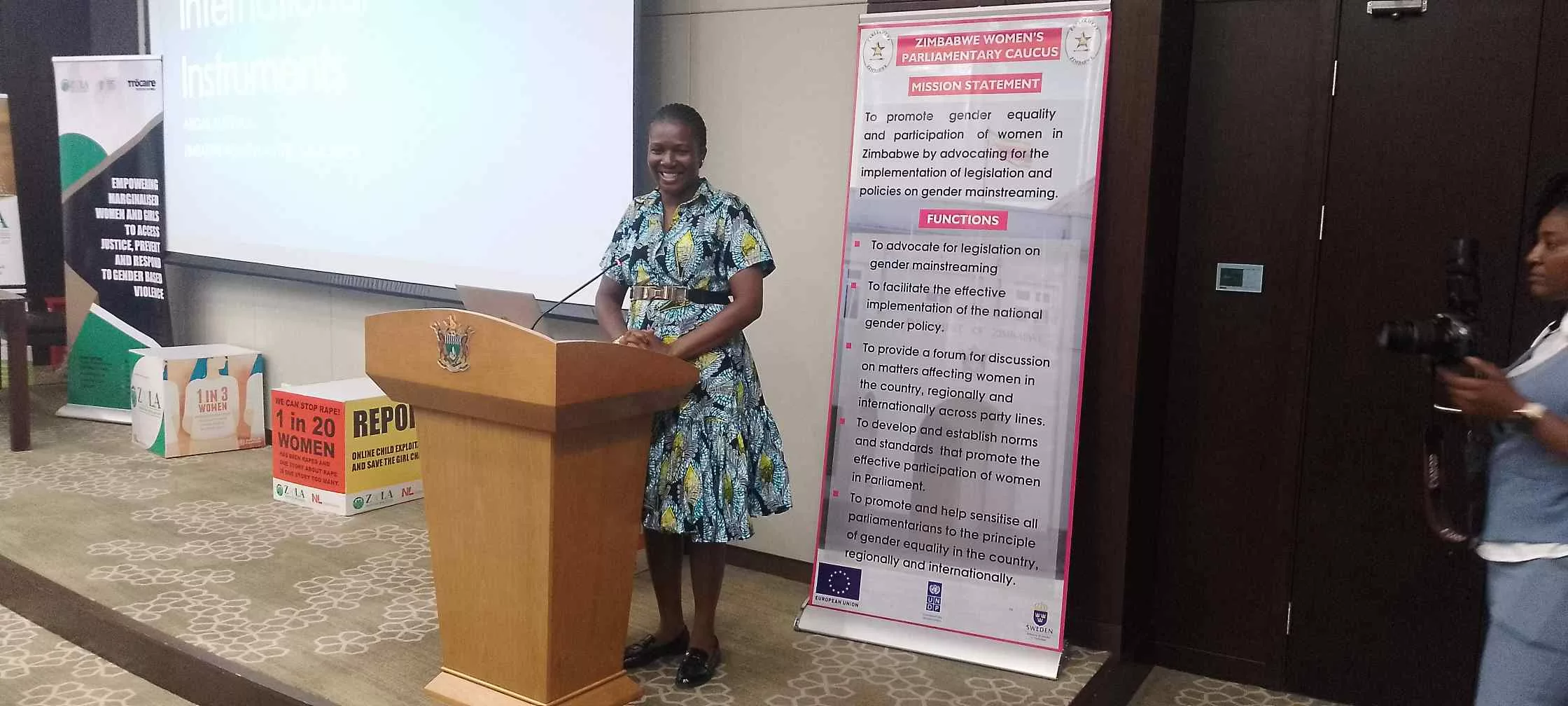The Zimbabwe Women Lawyers Association (ZWLA) has urged the Women’s Parliamentary Caucus to make sure international commitments in the Beijing Platform for Action are made into reality.
Abigail Matsvayi, the ZWLA Executive Director, was training the members of the Women’s Parliamentary Caucus when she revealed that Beijing is one of the international instruments that has an effect at the global level, thereby affecting all countries.
“It’s important as members of Parliament to know about Beijing because you are the ones that have been mandated to make those laws work. In short, instruments are laws that protect the rights of people, of human beings. They are laws that are made at the regional or international level. There are so many of them, in their hundreds, that we make as a country.
“As Parliament, our role then comes to say, how do we move those international commitments that have been made into reality? Beijing is an international instrument. How do we make that international instrument a reality in Zimbabwe? That is now where the role of Parliament comes in,” Matsvayi said.
There was a commitment by Zimbabwe in 1995 to the Beijing instrument, which is particularly focused on women’s rights. The country agreed to address the challenges that women are facing. Beijing was a very big meeting where women were highlighting across the different countries the challenges that they have.
Matsvayi said that 30 years later, there is a need to see if stakeholders have made progress from those commitments that were named in Beijing.
“Beijing was a visionary document and it had 12 critical areas that should be addressed. There is a reporting process in the review process. For example, CEDAW is reported and reviewed every four years so each instrument usually has a committee that is set up where there’s a new person that goes on, and the countries that have signed come back to that or to that UN-mandated committee to deal with the progress. Where are we? So for Beijing, Zimbabwe has been reporting on progress.”
She alluded to the Commission on the Status of Women – a global platform that happens every year in New York in March, where women the world over gather, to give updates on what is going on, what more can be done, and how to better the protection of rights of women. So for any instrument, whether it’s Beijing or any other, there will always be a country report by the government or the state party.
The Beijing Platform for Action, adopted at the Fourth World Conference on Women in 1995, marked a significant milestone in the global quest for gender equality.
Matsvayi said there are 12 focus areas of the Beijing Platform for Action. These are Women and Poverty; Education and Training of Women; Women and Health; Violence Against Women; Women and Armed Conflict; Women and the Economy; Women in Power and Decision-Making; Institutional Mechanisms for the Advancement of Women; Human Rights of Women; Women and the Media; Women and the Environment; and The Girl Child.
These 12 focus areas provide a comprehensive framework for promoting gender equality and empowering women and girls worldwide.
Today, as we reflect on the progress made and the challenges that remain, it is clear that adhering to the Beijing commitments is more crucial than ever.
“The Beijing Platform for Action is a powerful framework for achieving gender equality and empowering women,” said Hon Chijai Kambuzuma,the legislator for Hurungwe West Constituency, who is a leading advocate for women’s rights.
“It is imperative that we continue to work towards the realization of its goals, particularly in areas such as education, healthcare, and economic empowerment.”
The Beijing commitments emphasize the importance of addressing the social, economic, and political barriers that prevent women from realizing their full potential. They also recognize the critical role that women play in promoting sustainable development, peace, and security.
“Gender equality is not only a human right, but also a necessary condition for achieving sustainable development,” said Hon Sikhuphukile Dube, a renowned expert on gender and development.
“By empowering women and girls, we can unlock their potential and create a more just and equitable world.”
As the world continues to grapple with the challenges of poverty, inequality, and climate change, the importance of adhering to the Beijing commitments cannot be overstated.
“We must continue to push for progress on gender equality, even in the face of adversity,” said Linda Masarira, the president of LEAD, who is also a women’s rights activist. “The future of our world depends on it,” she added.
By reaffirming our commitment to the Beijing Platform for Action, stakeholders can create a brighter future for women and girls everywhere – a future that is marked by equality, justice, and empowerment.






